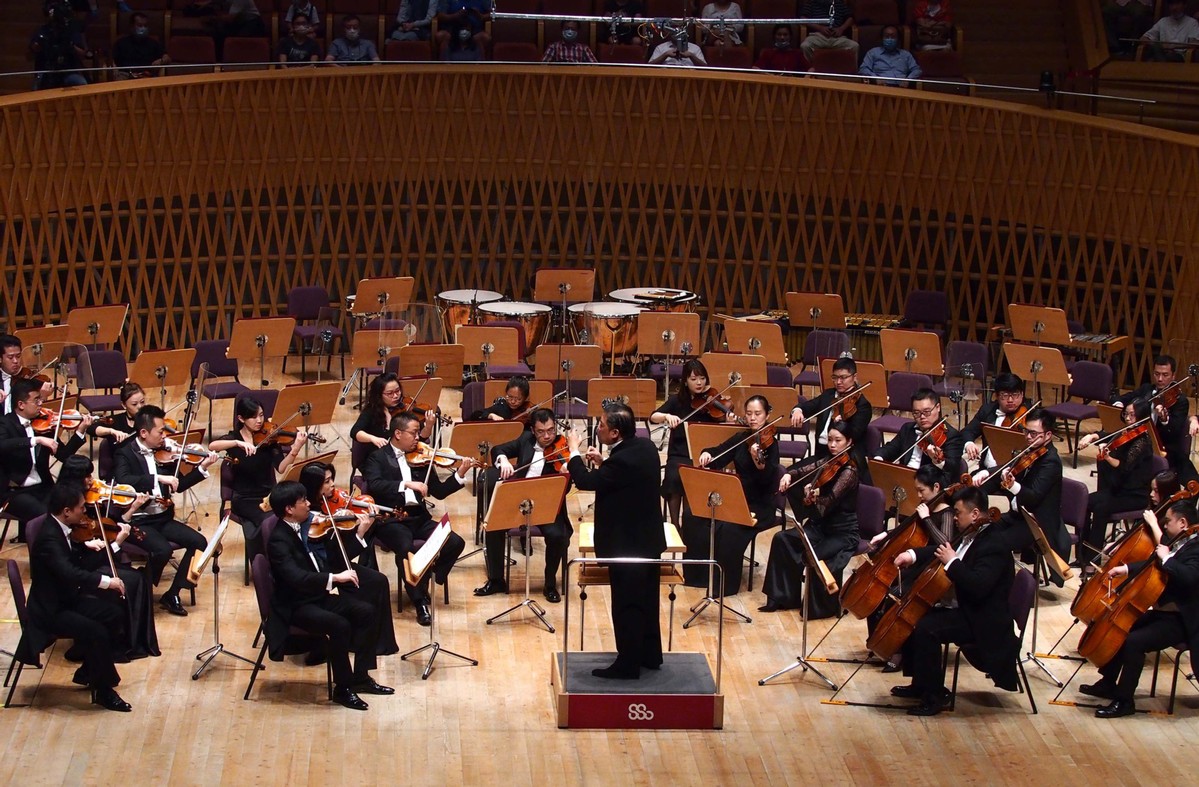Soothing sound of music works its magic


'Mending minds'
Chinese musicians, orchestras and performing arts organizations also have launched online programs since 2020, seeking to "mend minds" with music.
The Shanghai Symphony Orchestra recently started an online program featuring 14 of its principal players, including cellist Huang Beixing and trombone player Hao Jie. They teach children and adults with or without experience of learning music to play instruments.
Huang said: "Participants meet online several times a week to play music together. We are connected musically amid increased isolation during the pandemic."
Zhou Ping, the orchestra's president, said the online programs started in early 2020, when the ensemble's musicians sought new ways to engage with the public as concerts were postponed or canceled due to the pandemic. To date, 88 online classes have been recorded and streamed online.
"We thought about what we could do when people stay home. Many children learning musical instruments came to mind immediately," Zhou said. "We have numerous excellent musicians who are not only performers but also teachers, so why not give free lessons online?"
In addition to online classes, the Shanghai orchestra runs virtual programs such as Pre-Concert Talk, in which its musicians introduce classical music pieces. With simple and easy-to-understand instructions, concertgoers and those who may not be familiar with this genre get to learn about and understand such works.
In 2017, an 80-year-old garden villa in Shanghai was transformed into the Shanghai Symphony Museum, China's first museum for symphonic music. The facility is run by the orchestra. In the middle of last month, the museum opened an online version for audiences to experience the history of symphonic music in China.
Zhou said: "Since the museum opened to the public in 2017, it has been fully booked every day. Now that we have an online version of the institution, more people can visit it, which makes for a great form of home entertainment."
In early 2020, when cities in Hubei province were severely affected by the pandemic, Music Therapy Radio Show, an online program, was launched by the Wuhan Conservatory of Music. The show introduced programs with segments specially designed for mornings, afternoons and evenings to help ease listeners' stress and improve their sleep. The programs were also used by doctors to treat infected patients at three mobile hospitals in Wuhan, the Hubei provincial capital.
In January, when a new wave of COVID-19 hit Tianjin, some communities were locked down, including Su Nan's neighborhood. She had to stay at home for weeks on end.
"My life at that time was very tough, as I have always liked going out with friends," the 35-year-old Tianjin native said.
To keep busy, she decided to play a secondhand electronic keyboard she bought online last summer, hoping to use music to remain cheerful.
Su bought the keyboard after watching the South Korean television drama Hospital Playlist, which follows the story of five doctors who have been friends for about 20 years and work at the same hospital.
"They are good doctors and play in a band together. The show is very funny, but also touching," Su said.
"I also work in a hospital, so I can relate to the show. I learned to play electronic organ as a child, but have not played any musical instrument for several years.
"There are many free online classes teaching amateurs to play piano. I had lots of time to watch those classes and practice at home. Although my life has returned to normal, as the pandemic is under control, I still practice for an hour every day."
Su also shares her hobby with friends and colleagues, encouraging them to learn musical instruments.























